YANGON—More and more businesses in major cities are joining “social punishment” campaigns launched by young anti-coup protesters to bring down Myanmar’s military regime leaders, including boycotts of military-linked products and calls for shops to refuse to sell food and other goods to the security forces.
In the latest such campaign, shops including roadside vendors are refusing to sell goods to the police and military personnel, and their family members. It is intended to demonstrate their opposition to not only the military regime, but also the security forces involved in cracking down on anti-coup protesters.
A growing number of private shops in Yangon, Mandalay and Bago regions and Karen and Kachin states are putting up signs declaring: “We don’t sell to the police and military personnel. If you think this is shameful, don’t buy it.” Some vendors also added a line saying they won’t sell anything to civil servants who are not participating in the civil disobedience campaign against the military regime.
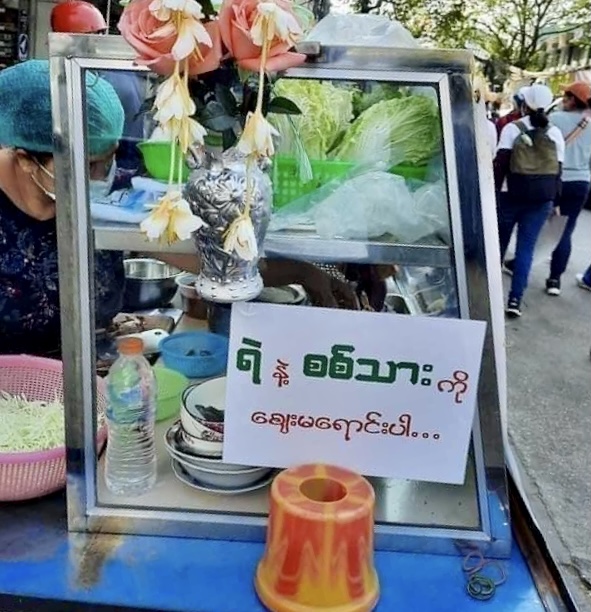
Campaigner Ma Khin San told The Irrawaddy that government employees are taking risks by participating in the Civil Disobedience Movement despite being threatened with arrest. An increasing number of businesses have joined the campaigns, as they offer a simple means of participation in opposition to the dictatorship.
“We need to put the military regime under pressure from all sides. Protesting peacefully on the streets is not enough; social punishment is needed,” Ma Khin San said.
“We must cut the channels that benefit the military. And we need to show them that we don’t accept their violent acts, by refusing to sell goods or food to them,” Ma Khin San said.
The youth protesters have also called for boycotting military products through a “Don’t buy it” campaign since early this month. The campaign, which has spread across the country, calls on consumers not to purchase any goods or services produced by military-owned companies. It targets the country’s fourth-largest telecom operator, Mytel, and its most popular beers, Myanmar Beer and Black Shield, as well as the cigarette brands Red Ruby and Premium Gold. Moreover, the campaigners have called on people to stop patronizing outlets of Gandamar Wholesale, Ruby Mart and Myawaddy Petrol, which are linked to the military regime.
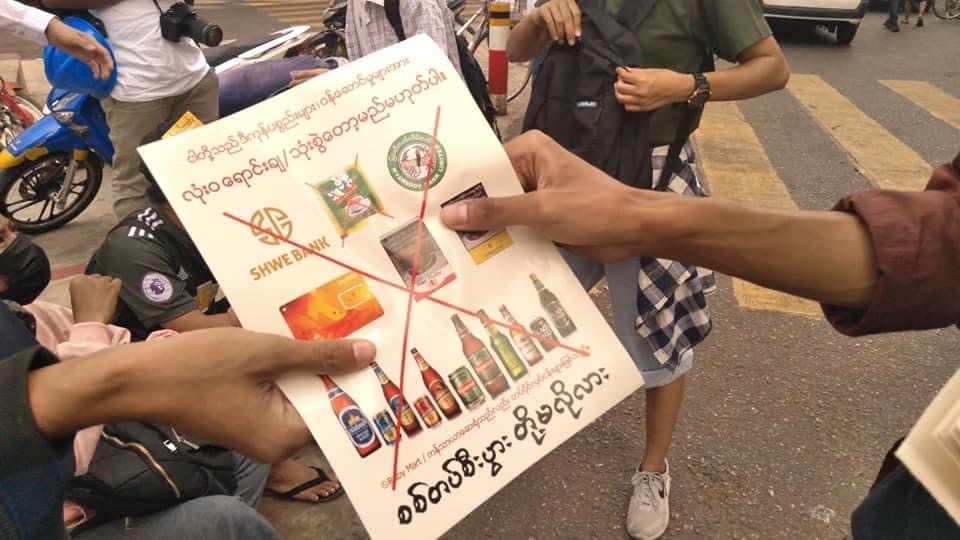
A large number of businesses in Myanmar, ranging from food and beverage manufacturers, entertainment firms and internet service providers to banks, financial enterprises, wholesale markets and retail businesses, have been linked to the military.
The campaign is having an effect. Myanmar Beer has not been seen on the shelves of the country’s largest retailer, City Mart, since last week. Moreover, a large number of restaurants in Yangon and Mandalay have announced that they will no longer serve beer brands linked to the military. Popular Yangon eatery chain Win Restaurant on Wednesday announced it had removed all Myanmar Beer posters and would no longer sell any products of military-owned companies at any of its branches. The move came after campaigners called for a boycott of the restaurants if it kept selling military-linked products.
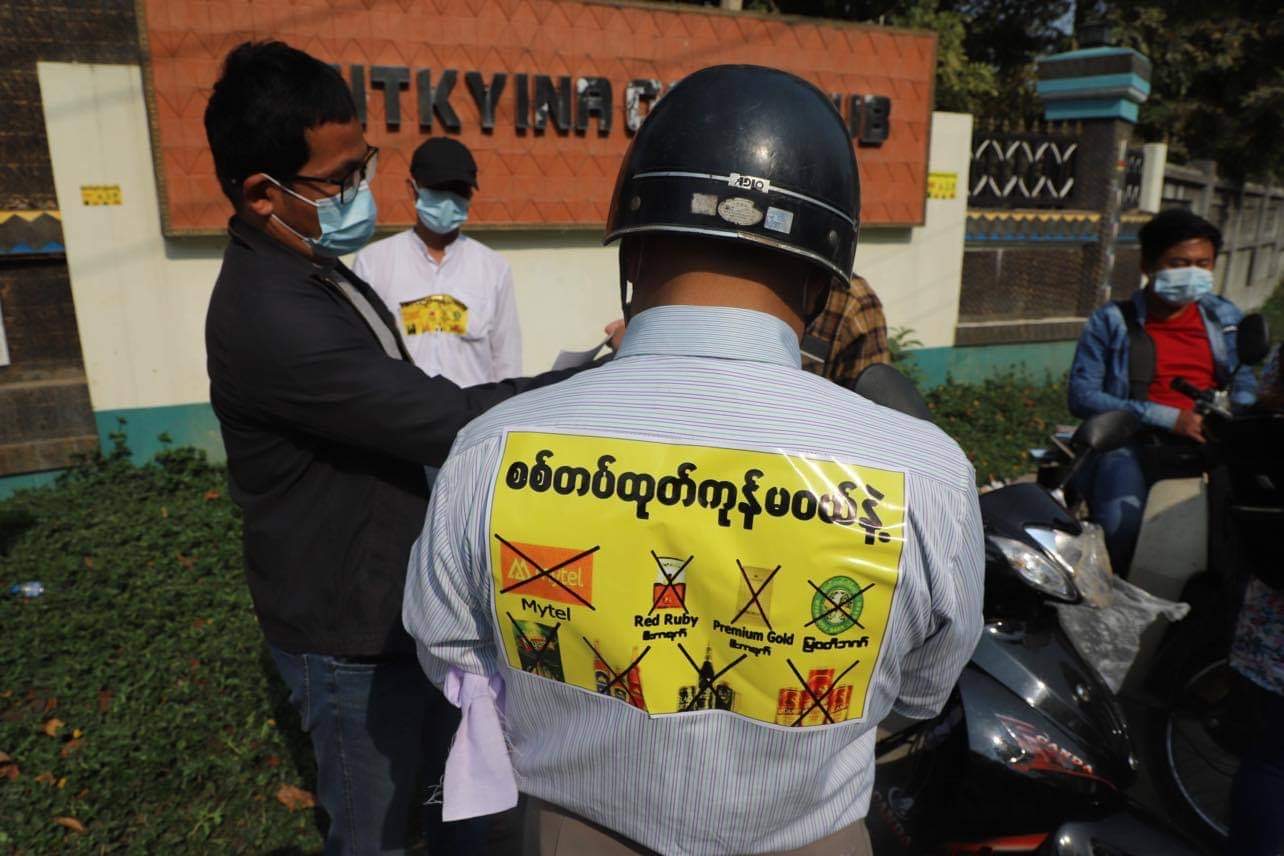
A number of convenience stores such as G and G and ABC appeared to have joined the campaign, with Myanmar Beer and Mytel sim cards no longer available at most of their branches in Yangon. According to a Facebook page run by the campaigners, small shops in the major cities have taken down advertising posters for Mytel and are refusing to provide related goods and services including Mytel Pay, sim cards and top-ups, to demonstrate their stand against the military regime.
“We will do anything that could hurt the military. Military businesses are a crucial source of revenue for the military to buy guns and weapons to oppress us,” a campaigner told The Irrawaddy.
“If we see military-linked products in shops, we urge them to stop selling them. We are also sharing documents that show how the proceeds from these products are supporting military operations,” he said.
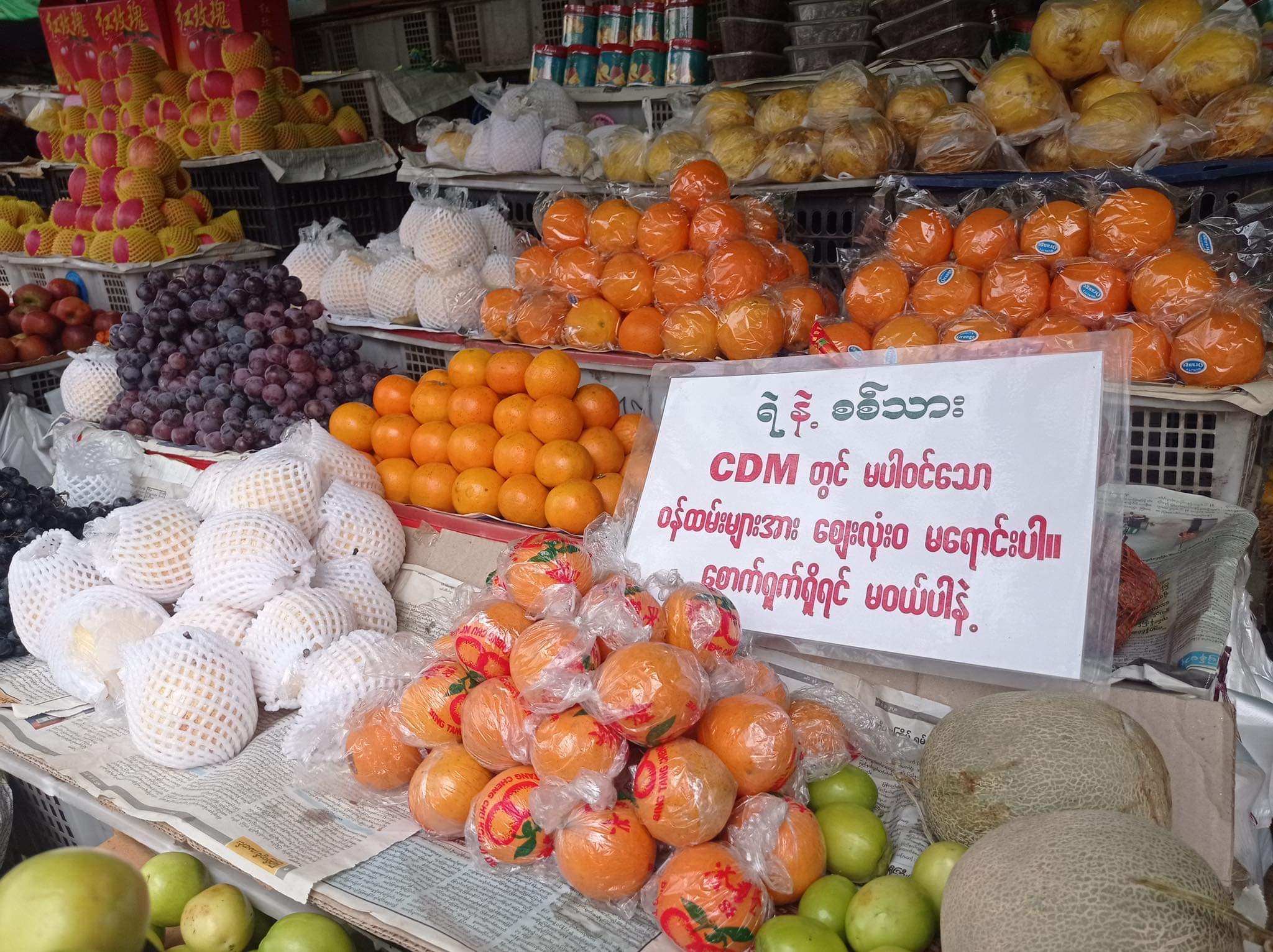
Thousands of young anti-coup protesters have joined the campaigns in Yangon, visiting shops and urging them to boycott military-linked products and services. They are also calling on people to stop buying from shops where the military’s products are being sold. Businesses have come under pressure to participate as the campaigns have spread across the country. Some of Myanmar’s most popular businesses including Shwe Pu Zun Cafeteria and Bakery House, and Burbrit Brewery, have felt compelled to declare that they do not have any connection with the military, adding that they stand with the people’s fight for democracy.
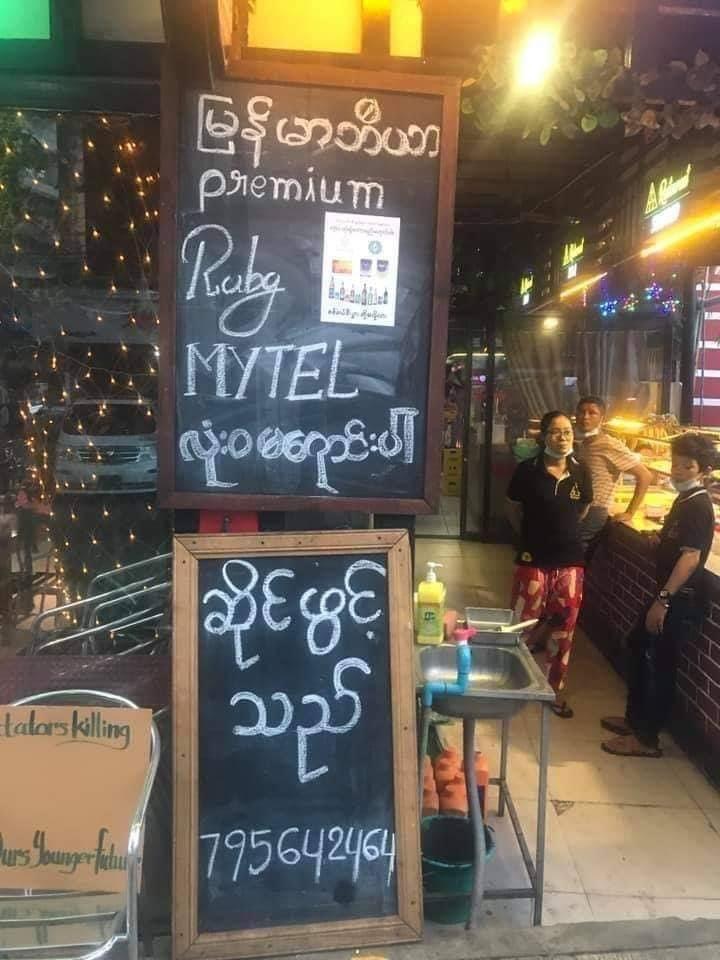
Thousands of people have also participated in a pro-democracy social media campaign, posting photos of themselves throwing away products linked with the military. One person posted a photo of herself pouring shower gel into the toilet after she learned that the company is owned by a general’s daughter-in-law.
According to a report by the UN Fact-Finding Mission on Myanmar, nearly 60 foreign firms jointly or indirectly do business with the Myanmar military. Following the coup, Japanese beverage giant Kirin announced that it would end its joint-venture beer business with Myanma Economic Holdings Public Co. Ltd. (MEHL). On Feb. 9, prominent Singaporean businessman Lim Kaling also decided to pull out of a joint venture with ties to MEHL that produces the country’s most popular cigarette brands, Red Ruby and Premium Gold.
You may also like these stories:
International Community Must Commit to Reversing Myanmar’s Military Coup
Myanmar Military, Associates Banned From Facebook, Instagram
Japan Weighs Halting New Assistance Projects to Myanmar After Coup

















